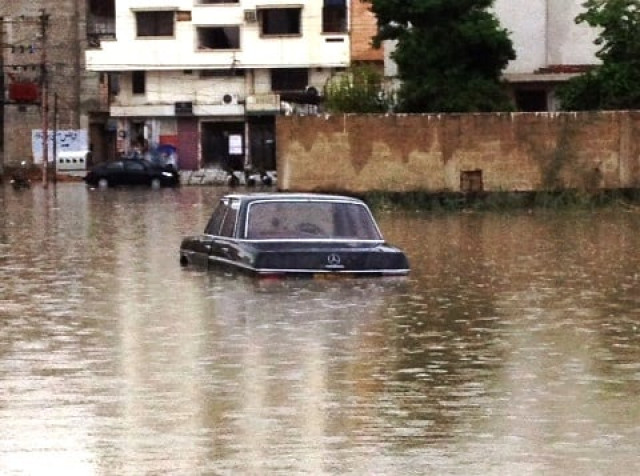Pakistan received 13% less rainfall in July
Met Office expects the averages will level out in the month of August

An official of the Aviation division said the PMD needed the money on a war-footing. “After getting the money there is a long procedure to follow for acquiring the required equipment that will take time,” he told The Express Tribune. PHOTO: EXPRESS
PMD Director-General Dr Ghulam Rasul told The Express Tribune that uncertainty about the intensity of monsoon rains would prevail in August but localised downpours are expected at a few places that might trigger flash floods.
Monsoon spell: Rain hits Karachi
The weather system that hit southern parts of the country, including Karachi, is expected to end today (Sunday).
From Saturday onwards, light to moderate showers are expected in north-eastern cities of Punjab such as Lahore, Gujranwala and Rawalpindi, and in Khyber-Pakhtunkhwa’s Dir, Swat, Shangla, Kalam, Buner and Bannu districts. Hazara and Malakand divisions are also likely to receive rainfall in the next 24 hours. “Some pockets may also receive heavy downpours, which could trigger flash flooding,” Rasul added.
The PMD director said the country witnessed short, high-intensity showers in some regions like Chitral that triggered flash floods in July.
In Pakistan, he said, people relate monsoon with floods and when there are no major ones, they believe there have not been enough rainfall. “Floods can easily be controlled if major dams like Tarbela and Mangla are operated intelligently,” he added. According to environmental experts, a majority of the PMD’s rain forecasts have proved wrong mainly because of the outdated equipment coupled with changes in global weather patterns.
Pervaiz Amir, a former member of climate change taskforce, said the inaccurate weather forecast hurt the agriculture community the most as it misled farmers. Similarly, inaccurate predictions by the Met Office about glacial floods have also created mistrust among people of the northern areas.
The PMD has demanded Rs18 billion from the government as part of a comprehensive plan to upgrade and modernise its weather forecasting system.
A proposal to this effect has been resubmitted to the Prime Minister’s Secretariat after making a few amendments as directed by it, the PMD director general told The Express Tribune.
Rain brings temperature down in Islamabad
“Now, a new plan has been chalked out and the period envisaged to carry out the necessary modernisation is three years from the earlier six years,” he said.
While sharing the salient features of the plan, Rasul said the PMD would acquire weather radars, build wind profilers and automatic weather stations and observatories in 40 districts.
“We have done our job, now we are waiting for the government to release funds. Through an early weather forecasting system we can save as many lives as possible,” he said.
An official of the Aviation division said the PMD needed the money on a war-footing. “After getting the money there is a long procedure to follow for acquiring the required equipment that will take time,” he told The Express Tribune.
Published in The Express Tribune, August 7th, 2016.



















COMMENTS
Comments are moderated and generally will be posted if they are on-topic and not abusive.
For more information, please see our Comments FAQ